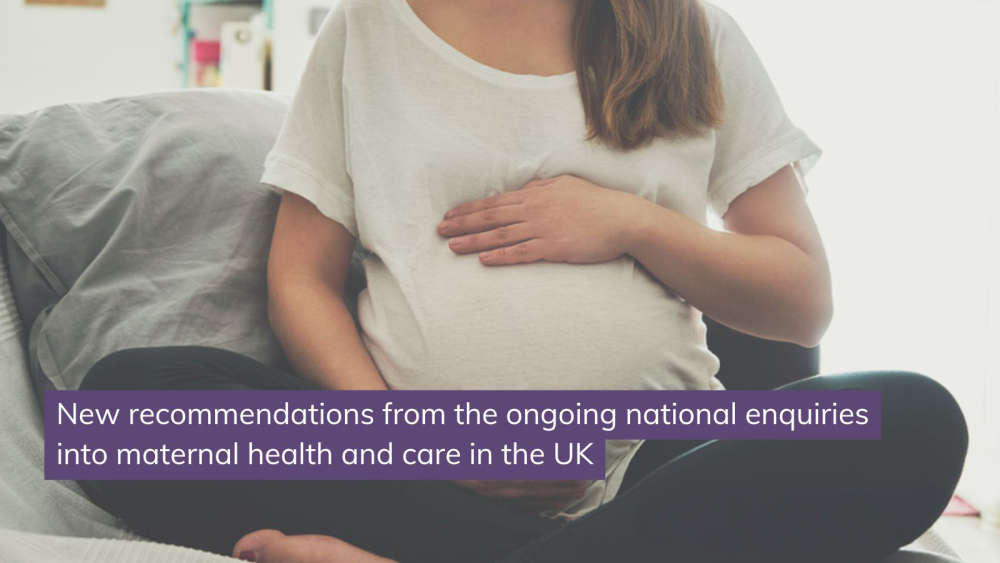New recommendations from the ongoing national enquiries into maternal health and care in the UK

Published on Thursday, 10 October 2024 Post
The MBRRACE-UK collaboration, co-led by Oxford Population Health's National Perinatal Epidemiology Unit, has today published the full Saving Lives, Improving Mothers' Care report on women who died during or up to a year after pregnancy between 2020 and 2022.
This report follows the data brief that was published in January 2024 that showed the maternal death rate in the UK to be at its highest level for almost 20 years. It examines the care received by the women who died in more detail and suggests strategies and interventions to prevent future deaths.
The data published by the MBRRACE-UK collaboration in January 2024 also showed that persistent disparities in maternal care remained. In 2020 to 2022, Black women were three times more likely to die during or up to six weeks after pregnancy when compared with White women. There was an almost two-fold difference in the rate of deaths amongst women from Asian ethnic backgrounds when compared with White women.
The data also showed that 12% of the women who died during or up to a year after pregnancy were at severe and multiple disadvantage, and women living in the most deprived areas of the UK were more than twice as likely to die when compared to women living in the least deprived areas.
The leading cause of death in this period was blood clots (thromboembolism), followed by COVID-19 and heart disease. Together these three conditions account for 43% of all maternal deaths between 2020 and 2022. COVID-19 vaccination was not the cause of blood clots in any of the women who died. The most common causes of death in women who died between six weeks and a year after giving birth were mental health related, including suicide and drug and alcohol use.
Key recommendations:
- The national risk assessment tool for blood clots must be evidence-based, clear, and accurate. Healthcare staff should consider the effects of vomiting, dehydration, immobility, and other symptoms that can increase the risk of blood clots;
- Women who need medication to prevent blood clots should be able to access it when they need it, including in the first trimester of pregnancy;
- Guidance for cancer diagnosis and management in pregnant women should be revised to include clear recommendations on the use and safety of diagnostic tools in pregnant women with a history of or with newly diagnosed cancer;
- End-of-life care guidance should be updated to include recommendations for the appropriate care of pregnant or recently pregnant women;
- Ambulance service methods for categorising risk should be revised to ensure that 999 calls regarding women who are pregnant, recently pregnant or have the potential to be pregnant are appropriately managed, which may include early navigation and assessment;
- Digital maternity records should include details of women's language needs, including the need for formal interpreter services, to ensure that these are taken into consideration at all interactions, including in emergency situations.
Professor Marian Knight, Director of the National Perinatal Epidemiology Unit and MBRRACE-UK maternal reporting lead, said 'The UK has had continuous national enquiries into maternity care for more than 70 years, and acting on the recommendations of these enquiries remains as important as ever. This latest national enquiry has identified key actions which are needed to ensure women at risk of blood clots are recognised and can access preventative treatment.
'The enquiry also identified opportunities for earlier diagnosis and treatment of cancer in pregnancy by staff recognising when women are describing concerning symptoms not normal for pregnancy. 999 calls from pregnant women and their families can be better prioritised to ensure seriously unwell women are treated without delay. A continued effort is required to ensure equitable outcomes for all women and it is critical that the individual needs of different women are taken into account when planning their care.'
The full report is available on the MBRRACE-UK website.





